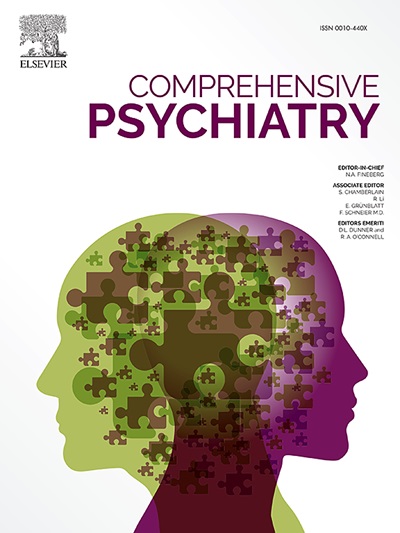Gender and trait rumination moderates the link between trait impulsivity and gambling problems severity in young adults
IF 4.2
2区 医学
Q1 PSYCHIATRY
引用次数: 0
Abstract
Aims
Trait impulsivity and trait rumination appear to uniquely contribute to problem gambling. However, only a limited number of studies have investigated their relationship with each other, and no study has tested whether their interplay could explain problem gambling. In this study, we aimed to examine these associations, especially focusing on the putative moderator role of gender.
Methods
The present study utilized data from the first wave of the Budapest Longitudinal Study, representatively surveying young adults. The final, weighted sample consisted of N = 1202 (649 men; mean age = 28.04 years; SD = 4.31) participants who reported gambling in the past year. Gambling severity was assessed by the Problem Gambling Severity Index (PGSI), trait impulsivity was measured by Barratt Impulsiveness Scale short form (BIS-R-10), while rumination was assessed by the short version of Ruminative Response Scale (RRS).
Results
Multiple linear regression analysis showed significant positive association between impulsivity and problematic gambling, and we found that both trait rumination and gender moderated this association, even after controlling for depressed mood, age, level of education, and subjective relative wealth. For men, when the level of trait rumination was high, higher levels of trait impulsivity were associated with an increase in gambling problems. However, these associations were not found among women.
Conclusions
Our results suggested that the interplay of trait rumination and trait impulsivity might contribute to problem gambling, potentially by the impulsive desire to alleviate negative mood states. Our results also revealed that these associations could be stronger among men than in women.
性别和特质反刍调节了特质冲动与青少年赌博问题严重程度之间的联系
目的 特质冲动和特质反刍似乎是导致问题赌博的独特原因。然而,只有少数研究调查了它们之间的关系,也没有研究检验它们之间的相互作用是否能解释问题赌博。在本研究中,我们旨在研究这些关联,尤其关注性别的潜在调节作用。方法本研究利用了布达佩斯纵向研究第一波的数据,对年轻成年人进行了代表性调查。最终的加权样本包括 N = 1202(649 名男性;平均年龄 = 28.04 岁;SD = 4.31)名报告在过去一年中赌博的参与者。结果多重线性回归分析表明,冲动与问题性赌博之间存在显著的正相关,即使在控制了抑郁情绪、年龄、教育水平和主观相对财富之后,我们也发现特质反刍和性别会调节这种相关性。对于男性来说,当特质反刍水平较高时,特质冲动水平较高与赌博问题的增加有关。结论我们的研究结果表明,特质反刍和特质冲动的相互作用可能会导致问题赌博,这可能是通过冲动的欲望来缓解负面情绪状态。我们的研究结果还表明,这些关联在男性中可能比在女性中更强烈。
本文章由计算机程序翻译,如有差异,请以英文原文为准。
求助全文
约1分钟内获得全文
求助全文
来源期刊

Comprehensive psychiatry
医学-精神病学
CiteScore
12.50
自引率
1.40%
发文量
64
审稿时长
29 days
期刊介绍:
"Comprehensive Psychiatry" is an open access, peer-reviewed journal dedicated to the field of psychiatry and mental health. Its primary mission is to share the latest advancements in knowledge to enhance patient care and deepen the understanding of mental illnesses. The journal is supported by a diverse team of international editors and peer reviewers, ensuring the publication of high-quality research with a strong focus on clinical relevance and the implications for psychopathology.
"Comprehensive Psychiatry" encourages authors to present their research in an accessible manner, facilitating engagement with clinicians, policymakers, and the broader public. By embracing an open access policy, the journal aims to maximize the global impact of its content, making it readily available to a wide audience and fostering scientific collaboration and public awareness beyond the traditional academic community. This approach is designed to promote a more inclusive and informed dialogue on mental health, contributing to the overall progress in the field.
 求助内容:
求助内容: 应助结果提醒方式:
应助结果提醒方式:


